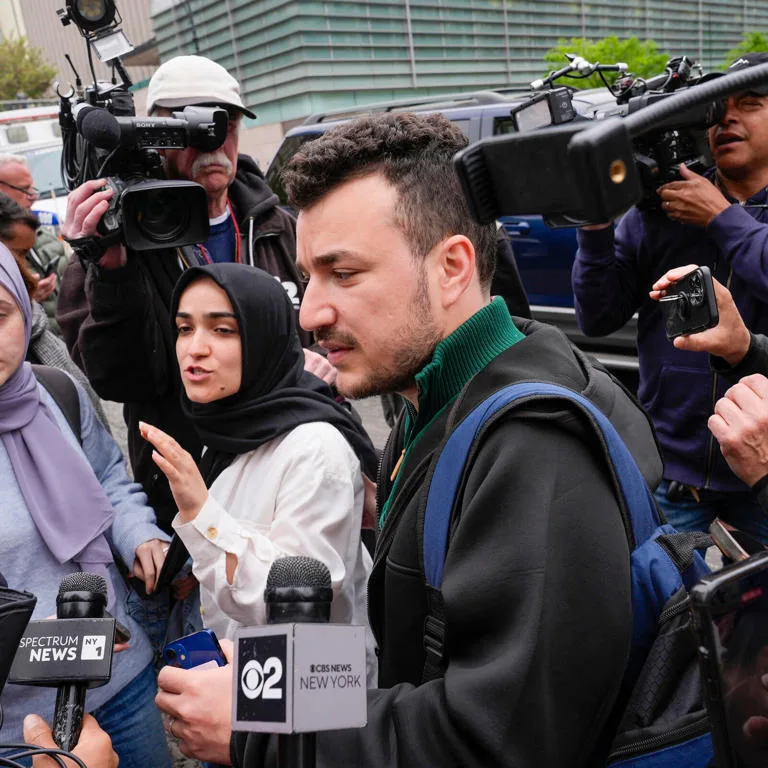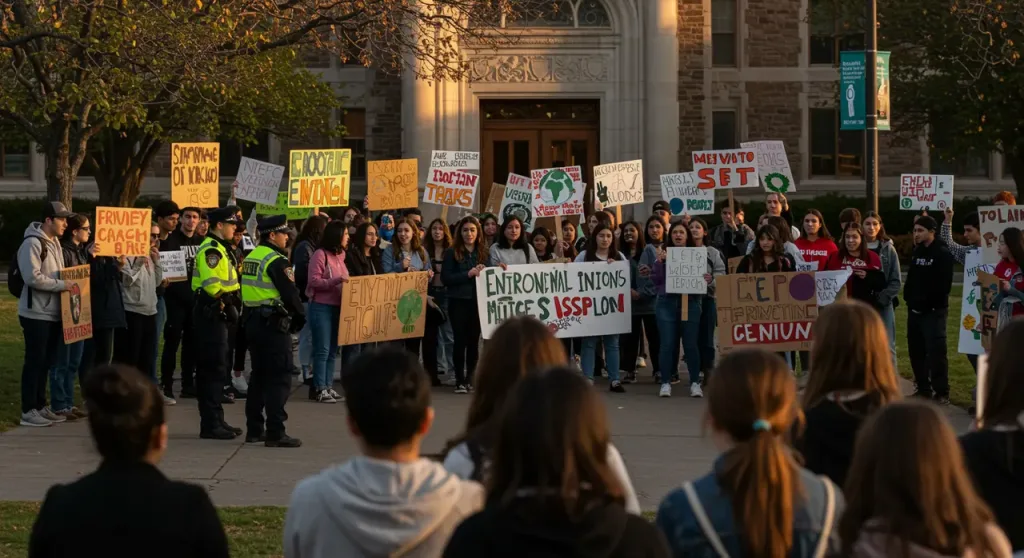Days after he was arrested by federal officials at his Columbia University residence in an attempt by the Trump administration to deport him. The Palestinian activist Mahmoud Khalil will remain in an ICE detention facility in Louisiana for now following a procedural hearing in New York,
Khalil was arrested and detained on Saturday over his role in protests against the Israel-Hamas war at Columbia University last spring. His green card was revoked by the Trump administration, his lawyer said, but New York federal Judge Jesse Furman blocked any immediate effort to deport Khalil until his attorneys and the federal government appear in court.
In court Wednesday, Furman ordered that Khalil be allowed at least one call Wednesday and one Thursday with his counsel as they prepare to meet briefing deadlines, after his attorneys asked the court to help them gain better access to their client.
We literally have not been able to confer with our client once since he was taken off the streets of New York City,” Ramzi Kassem, an attorney for Khalil, said.
“He was taken by US government agents in retaliation, essentially, for exercising his First Amendment rights, for speaking up in defense of Palestinians in Gaza and beyond, for being critical of the US government and of the Israeli government,” Kassem said outside court following the hearing Wednesday.
Khalil’s move to Louisiana was “further retaliation,” Kassem said, for exercising his constitutional right to file a habeas corpus petition.
Department of Justice attorneys said at the hearing they will attempt to move the proceedings out of New York to New Jersey, where Khalil was initially taken after his arrest, or Louisiana, where he is currently detained.
Related article|A judge slams the brakes on the Trump administration’s attempt to deport a pro-Palestinian activist
Supporters and observers packed the federal chamber during Wednesday’s hearing. Several of them had lined up hours before, hoping for a spot in the gallery. The crowd, made up mostly of young men and women, included some who wore keffiyehs, traditional scarves that have come to be identified in particular as a symbol of Palestinian identity and resistance.
The case, seemingly the first of its kind, sets the stage for what could come as the Trump administration ramps up its targeting of foreign students and pro-Palestinian demonstrations on college campuses.

Brandon Waterman, the attorney for the Department of Justice, said in court that Khalil is not in immediate danger of deportation while immigration proceedings continue.
President Donald Trump had touted Khalil’s arrest and vowed to find and deport others like him.
“If you support terrorism, including the slaughtering of innocent men, women, and children, your presence is contrary to our national and foreign policy interests, and you are not welcome here,” Trump said on Truth Social on Monday.
The White House has not provided evidence to support accusations against Khalil and it is not clear if he has been charged with any crime.
White House Press Secretary Karoline Leavitt at a news briefing Tuesday accused Khalil of organizing “group protests that not only disrupted college campus classes and harassed Jewish-American students and made them feel unsafe on their own college campus, but also distributed pro-Hamas propaganda, flyers with the logo of Hamas.”
Khalil’s lawyers argued in court documents his removal from New York City to a detention facility in Louisiana in retaliation for his “protected speech and advocacy” is unconstitutional.
His attorneys filed a habeas corpus petition “challenging the validity of his arrest and detention,” one of his lawyers said Sunday.
US border czar Tom Homan called Khalil’s arrest “justified” while also threatening to increase the number of ICE agents in New York and other sanctuary cities during a wide-ranging press briefing on Wednesday.
“It’s a direct violation of our foreign policy objectives. When you hand out leaflets, incite violence on a college campus, that’s illegal,” Homan said while flanked by Republican lawmakers in Albany, New York.

The government has provided no evidence that Khalil handed out any leaflets or flyers during his time at Columbia or at protests.
Trump administration lawyers will not agree to bring Khalil back to New York without a court order, according to court filings.
Attorneys for both parties filed a joint letter in federal court Tuesday, telling a judge they were unable to reach an agreement to return Khalil to New York, setting up Wednesday’s showdown in court.
Trump administration lawyers told the court they will submit a motion to transfer or dismiss Khalil’s habeas corpus petition, arguing the Southern District of New York is “an improper venue” and has no jurisdiction over Khalil’s case.
A spokesperson for the Southern District of New York did not immediately return a request for comment.
